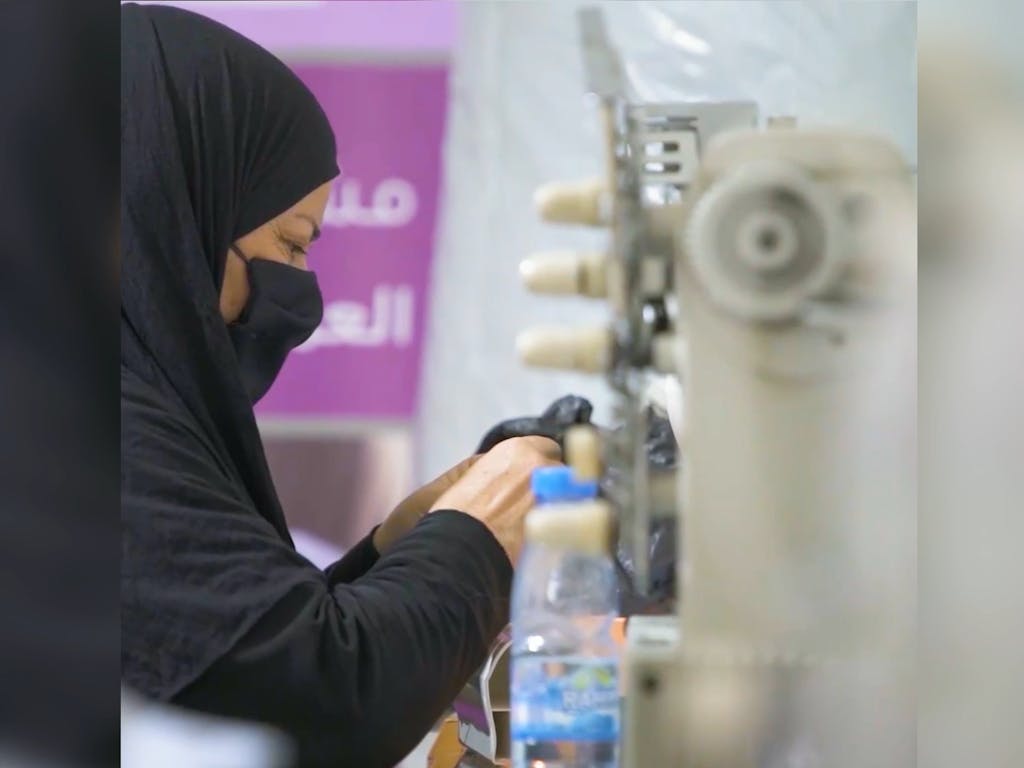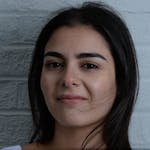With the support of the COVID-19 Solidarity Response Fund, the UN Refugee Agency in Lebanon is training refugees to sew masks to protect their communities against COVID-19.
At a workshop in southern Lebanon, Zainab focuses as she quietly feeds cloth into a sewing machine. Piles of completed masks sit on a table in the middle of the room, stacked according to color. Adhering to the new normal during this pandemic, all of the women around her are wearing masks.
“Sewing is an art in itself,” the Lebanese local says, behind a blue mask dotted with rainbows and rings. “It’s very important for people to have their own skills, and to express themselves through them.”
Here in Kfar Tebnit, refugees and locals are busy working together, making masks to protect their community from COVID-19, thanks to training and materials from UNHCR, the UN Refugee Agency, and the COVID-19 Solidarity Response Fund. Once completed, the masks are distributed for free to those in need.
“We started with them from the beginning, teaching them how to design a mask, how to sew it,” says Tabaja, who is training the women on mask-making. “They really like the course.”
“Sewing, making masks & being positive is much better than having negative energy from the pressures of life.”
These ladies are joining the fight against #COVID19 by producing masks from scratch.😷
They will be distributed for free to those who need them in #Lebanon#StaySafe pic.twitter.com/FVKZEbdLjg
— UNHCR Lebanon (@UNHCRLebanon) August 2, 2020
Beyond sewing, the women have learned other valuable lessons and skills.
“Women learn new techniques to develop the masks and, in the process, are more sensitized to the importance of hygiene measures,” says UNHCR community-based protection officer Carol El Sayed. “Through making the masks, they are also protecting and preventing COVID-19 spread in their communities.”
El Sayed explains that there are also social benefits that refugee women gain through engaging together as a group, including forging social ties with local Lebanese in the community. The women are brought together in a common cause, she says: “the fight against COVID-19, which does not distinguish between anyone.”
In 2020, UNHCR trained 443 individuals in mask-making in Lebanon, and they produced more than 79,000 masks for distribution in their communities. Mask provision has been lifesaving, particularly in a place like Kfar Tebnit where vulnerable refugees are already at risk and don’t readily have access to personal protective equipment. In Lebanon, the number of COVID-19 cases has spiked since the holidays, increasing pressure on already scarce hospital beds, oxygen supplies, and medical personnel.

“Learning a skill is an insurance from poverty,” said Tabaja. “These skills can help you improve your socioeconomic situation. You [can] fight to survive in these difficult times we are living through.”
YOU CAN HELP
The world has yet to turn the page on COVID-19, a virus that is disproportionately affecting the most vulnerable among us. The COVID-19 Solidarity Response Fund continues to support efforts to fight the virus and protect the lives of refugees around the world. It is the fastest and most effective way for individuals, companies, and organizations to support the work of the World Health Organization (WHO) and its partners in battling the virus.
This piece was provided by UNHCR’s Warda al-Jawahiry and has been edited and published with permission.



 View All Blog Posts
View All Blog Posts